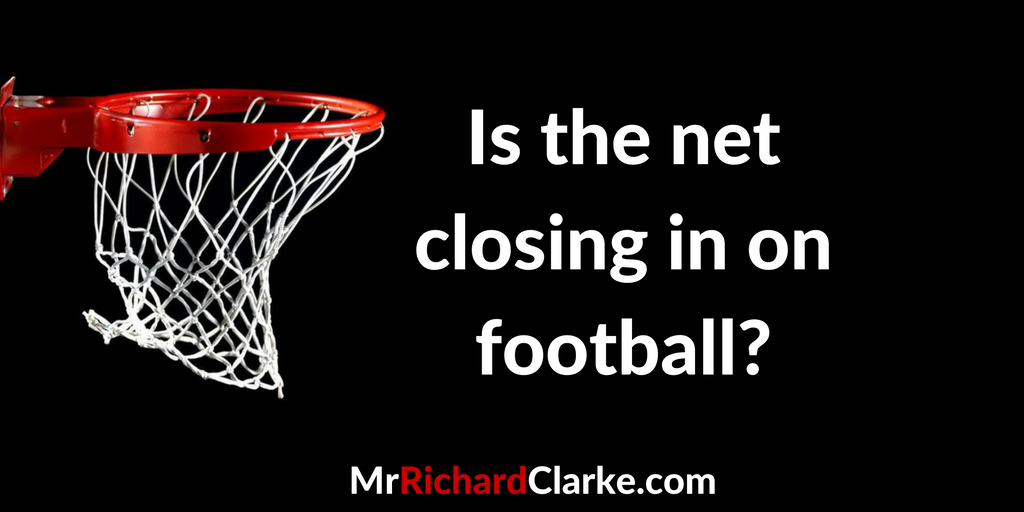Is football (⚽️&🏈) under threat?
This week, two thoughtful, well-argued articles were published suggesting “football” was in danger of being knocked off its pedestal of pre-eminence.
Given they were written for publications based on either side of the Atlantic, the pieces concerned two entirely separate sports. However the hints of a possible slide had some similar themes – disappointing TV ratings (albeit from a small sample early on this season), changing patterns of youth engagement and, linked with that, digital disruption. Another article even suggested the rise in eSports viewership was a factor.
The NFL and Premier League have been later adopters and less liberal than other sports over the use of match footage in digital and social media. As holders of the No1 and No2 TV sports deals in the world, they had a lot more to protect of course. But this is a significant parallel between two sports facing a similar question.
Of the major sports, perhaps F1 has dragged its heels the most and, as this blog has stated before, there is a striking contrast between its current standing in public consciousness and that of a new, rising sport like UFC, who built much of its expansion upon digital foundations. And, of course, was sold recently for $4bn.
NBA is considered the pretender to NFL’s crown and, in contrast, has been a beacon of digital innovation and open-mindedness. Meanwhile MLS continues to march towards the mainstream in US sport, thanks to a similar approach.
Of course every journalist is looking for the contrary, the status quo rarely sells a story and, even in this week’s articles, the right-holder responded with reasons rather than excuses. There will be no sporting empires crumbling in the short-term so writing post-mortems would be somewhat embarrassing.
But, over time, the tectonic plates will shift, bump into each other and leave the landscape looking rather different.
The NFL’s Twitter deal may have been an early sign of change. But you could argue that is a slippery slope because, as more and more right-holders redeploy some of their live content to major social media platforms, the expectations will change.
Years ago, when there was little precedent and the technology was immature, yet clubs used to be questioned over why they could not show competitive games on their websites. If leagues are already streaming shoulder content through their Facebook page then the 3WIW generation (what I want, where I want, when I want) will vote with their feet from the comfort of their couch when it comes to match action.
The concept of second screen is firmly established these days but how often are they delivering contrasting rather than complimentary content? Sport digital always assumes you want more of the game so you are tweeting, chatting or looking up vital statistics when, in reality, you are indulging in everything but.
That makes you a viewer but only with half an eye – and the TV ratings do not possess this type of granularity.
“We are dependent on traditional advertising and TV revenues while those industries are going through dramatic changes. Whichever company is most nimble in addressing those challenges will come out on top.”
That lack of attention could be costly to the old order. Not now, not tomorrow and, if the major leagues can adapt, maybe not ever.
But it is interesting that the question is starting to be posed.





